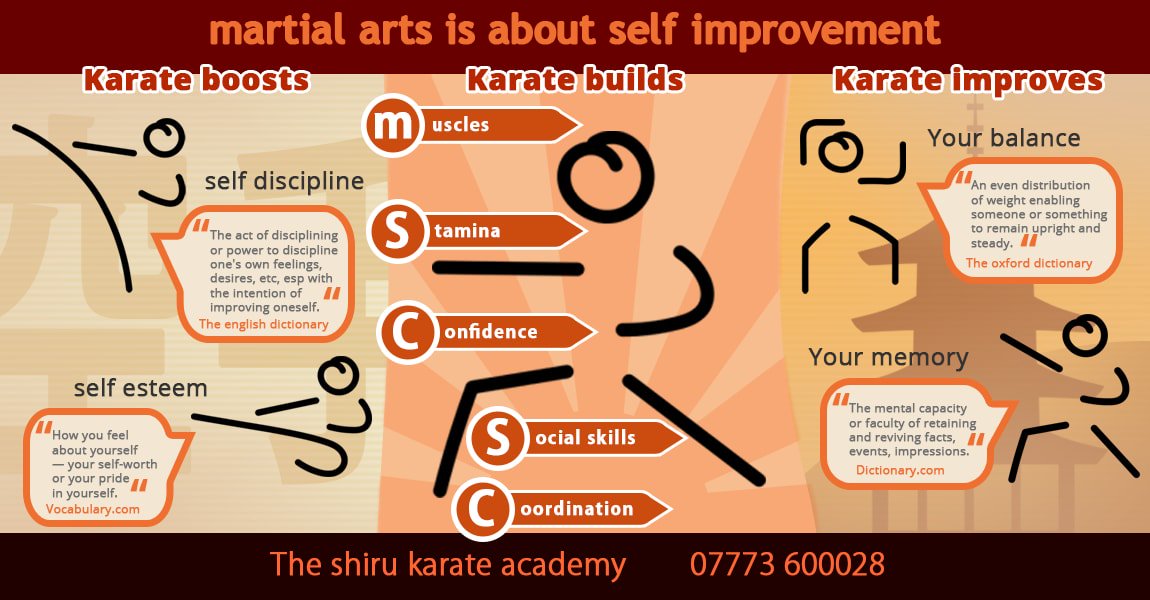The History And Viewpoint Of Fighting Style: A Deep Dive
The History And Viewpoint Of Fighting Style: A Deep Dive
Blog Article
Authored By-Ryberg Mcintyre
Step into the ancient globe where martial arts were substantiated of necessity in varied areas. Societies crafted unique fighting styles linked with historic contexts. Methods evolved over centuries with devoted practice and cultural exchanges. Today, contemporary martial arts mix conventional aspects for maximum performance. Philosophically, martial arts stress self-control, self-improvement, and harmony. Regard, humility, and balance are foundational principles assisting practitioners in the direction of growth and resilience. Check out the depths of this abundant history and philosophy to reveal the extensive influences shaping this enduring discipline.
Origins of Fighting Style
Martial arts originated in different regions around the globe, developing as sensible battle systems to resist hazards. These old combating styles were established out of requirement, with each culture crafting techniques fit to their unique settings and obstacles. From the grappling arts of Jujutsu in Japan to the striking techniques of Kung Fu in China, martial arts were deeply intertwined with the historical, social, and cultural textile of their corresponding cultures.
In Japan, the samurai course polished martial arts like Kenjutsu, the art of the sword, which later evolved right into the extra promoted form of Kendo. On the other hand, in Brazil, Capoeira emerged as a mix of dancing and combat, created by enslaved Africans as a method to withstand injustice. Each martial art carries with it a rich history and philosophy, mirroring the worths and beliefs of individuals that exercised them.
As you look into the beginnings of martial arts, you discover a tapestry of human resourcefulness, resilience, and the stubborn spirit of warriors throughout time.
Development of Strategies
With centuries of method and improvement, combat strategies within various martial arts have actually gone through an extensive advancement. From old styles like Kung Fu and Martial arts to extra modern disciplines such as Brazilian Jiu-Jitsu and Krav Maga, the development of methods has been driven by a combination of cultural impacts, practical applications, and technical advancements.
One substantial aspect of this evolution is the cross-pollination of techniques in between different martial arts. For instance, strategies from traditional Japanese Jiu-Jitsu were incorporated right into the creation of Judo by Jigoro Kano in the late 19th century. This blending of designs has actually brought about the advancement of crossbreed martial arts like Mixed Martial Arts (MIXED MARTIAL ARTS), which combine aspects of striking, grappling, and entry techniques.
Additionally, the development of techniques has been formed by the increasing emphasis on efficiency and efficiency in fight. Professionals have continually looked for to improve their strategies with strenuous training, experimentation, and competition, leading to the advancement of very specialized and effective fighting designs. On the whole, the advancement of methods in martial arts shows the dynamic nature of battle and the recurring quest for renovation and development.
Philosophical Foundations
Checking out the underlying thoughtful principles of martial arts provides understanding into their core values and guiding ideas. At the heart of many martial arts disciplines is the principle of discipline itself. By training your body and mind to serve as one natural unit, you grow discipline that prolongs beyond the dojo or gym right into day-to-day life. This technique encompasses regard, humility, and self-constraint, forming not simply your physical capacities yet also your character.
Another basic thoughtful foundation in martial arts is the idea of continual self-improvement. The journey of understanding a martial art is never-ending, with experts constantly aiming to much better themselves, both literally and emotionally. This focus on development cultivates durability, determination, and a development attitude that can be applied to all facets of life.
Furthermore, martial arts highlight the value of harmony and balance. Methods are developed to use a challenger's energy against them, highlighting the principle of generating and rerouting force rather than satisfying it head-on. This ideology extends to interpersonal relationships, advertising relaxed resolutions and good understanding. By welcoming these thoughtful foundations, martial musicians not only boost their fight abilities yet also cultivate a way of life fixated individual growth, respect, and harmony.
read full article , the history and philosophy of martial arts supply a rich tapestry of practice, discipline, and self-improvement.
Take for https://eternal-martial-arts-and10865.luwebs.com/28229779/benefits-for-the-mind-and-feelings-acquired-from-participating-in-martial-arts of Bruce Lee, that revolutionized martial arts by blending different styles and philosophies to create his very own unique type of Jeet Kune Do.
Via commitment and innovation, martial artists remain to push borders and inspire others to reach their complete capacity both in fight and in life.
